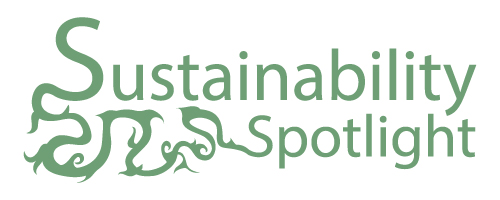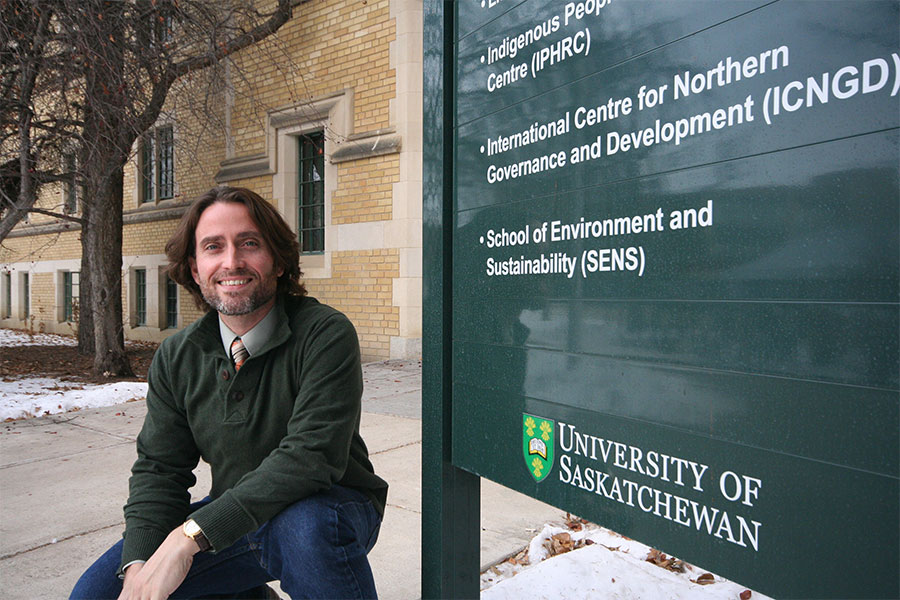Sustainability Spotlight - Philip Loring
Sustainability Spotlight aims to cast a light on the individuals on campus going over and above their regular duties in the name of sustainability. Today's spotlight features Philip Loring, Assistant Professor with the School of Environment and Sustainability.
By Matt Wolsfeld
Welcome to Sustainability Spotlight, a chance to highlight the individuals around campus going above and beyond to advance sustainability at the University. The School of Environment and Sustainability (SENS) is privileged to have a fantastic faculty from a wide range of disciplines across campus. The interdisciplinary and collaborative nature of this faculty helps it to integrate well with students and staff around the university to help further sustainability initiatives, and Philip Loring is a great example of this kind of work.
Phil has been with SENS for 2 years and teaches on the subjects of food systems and security, fisheries, climatic and environmental change, and environmental justice. He works closely with his students to encourage an active participatory element in their studies. Recently, Phil had his ENVS 401 class sign up on behalf of the U of S for NetImpact’s Small Steps campaign which helps to log sustainable activities on campus and demonstrate how students contribute to sustainability on a personal level. Despite being the only Canadian school participating in the Small Steps campaign and competing against universities with much longer semesters, U of S finished sixth and was the top international school.
The Office of Sustainability’s Living Lab initiative also owes much to Phil, who as part of his ENVS 401 curriculum asked his students to undertake a living lab project and present their findings at April’s Living Lab Project Symposium. The projects ranged from community gardens to renewable energy options on campus and caught the eye of representatives from Facilities Management, Consumer Services, and even The Star Phoenix. Phil’s passion for teaching shows in the response from his students: “I particularly enjoyed our discussions about the roadblocks to implementing sustainability, which were often simple logistical or communication issues that at times are the greatest deterrents to changing how the world works,” says Kent Walters, a student of Phil’s from the College of Agriculture and Bioresources. “The bottom line is that…Phil really wanted to see us succeed, and if not succeed, learn something about why we couldn’t.”
Outside of his role as a professor, Phil is actively engaging the global community in important sustainability issues through his research. A student on one of Phil’s research grants recently earned an honourable mention in the 2015 Greenpeace short film contest for the film Sea Ice Secure, the first in a series of short films produced by Phil through his Sustainable Futures North project. The film showcases how rapid changes in climate, weather, and development are affecting the daily lives of hunters, fishers, and gatherers in 10 rural Alaskan villages. Phil relishes the opportunity to showcase through these videos certain aspects of climate change that go ignored in many discussions: “Too much of the Arctic dialogue focuses on what climate change might mean for new business opportunities such as shipping and oil development,” Says Phil. “There’s a real social justice implication to climate change that these videos highlight.”
The Office of Sustainability relies on faculty like Phil Loring to help spread the use of sustainability across the student and faculty population. His integration of sustainability into his curricula, his students’ extracurricular lives, and his own personal research exemplifies the interdisciplinary and collaborative nature that sustainability thrives on. It is our hope that Phil and his colleagues in sustainability around the university are only the beginning of this shift.

